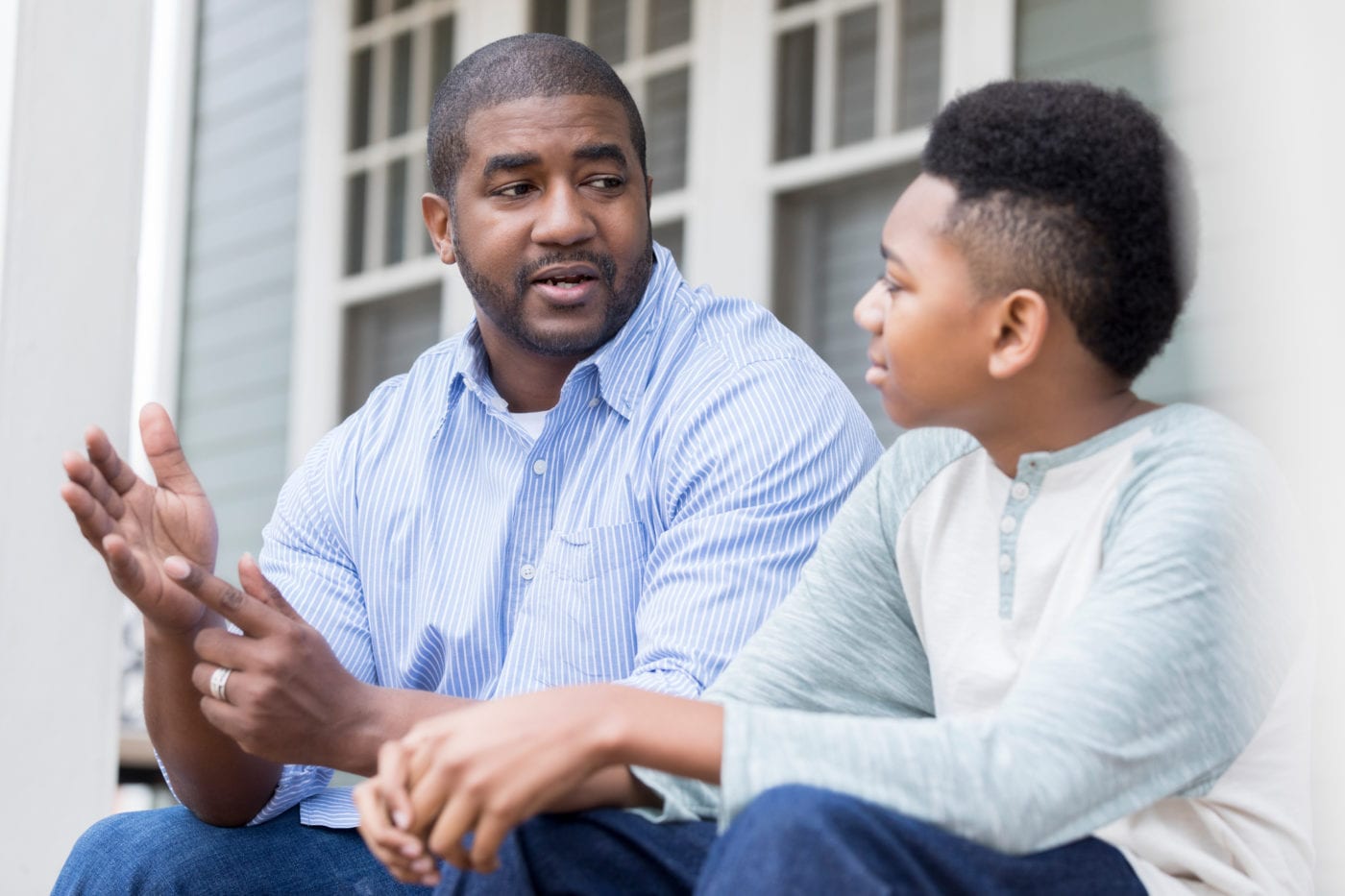When my oldest daughter was in 10th grade, she said something that floored me. She said she was going to her friend’s house. What? Just the night before, she spent 20 minutes sharing in painstaking detail how this same friend had been unkind to her. Why would she want to spend time with this person?
Just as I was about to lecture her on the importance of choosing kind friends, my wife gave me a subtle look that screamed, “Don’t!” My wife knows my tendency to impart all my fatherly wisdom at all the wrong times. I have to remember that teenagers’ bodies and brains are riding an extreme, chemical roller coaster. Therefore, it is so important for all of us dads to choose our words carefully. To help you do that, here are 4 questions to ask yourself before instructing your teenager.
1. Should I say this?
This one question can be a game-changer. Teenagers are constantly doing and saying illogical things. So calling out every wonky thing they do is a full-time job. Plus, calling out all our kids’ mistakes can decrease the volume of our words of encouragement. Pausing before speaking begins the process of choosing the best response.
2. Should I say this now?
If you answer yes, then consider when you will say it is the next key step. If your child is emotional about something you need to challenge, they are operating out of the emotional part of their brain. The logical part of their brain is not working at top capacity. So waiting until they are not as sad, mad, or even excited gives your child a better chance of hearing what you have to say.
3. What should I say?
Our automatic words to our kids are not always the best ones. When we take time to consider what we should say, it increases the odds of saying what we need to say versus what our frustrations want to say. If needed, it also gives us time to seek wisdom from others, like friends and allprodad.com. And a side note—fewer words are typically better. Once you’ve made your point and asked questions to ensure they understand, be done. Oh, how I need to get better at this!
4. How should I follow up?
How your kid typically responds to your guidance will help determine how and if you need to follow up. If your kid responded well, and you got your point across, telling him you appreciate how he responded and why you appreciate it could be powerful. If your instruction provoked much emotion, waiting to follow up until your kid has calmed down will usually be better. And I probably don’t have to remind you that your follow-up will probably not be met with sincere appreciation for having such a thoughtful dad. That part will come later—much, much later.
Sound off: How do you decide when and how to instruct your teenager?
Check out this All Pro Dad podcast as our team dives deeper into this subject!












Huddle up and with your kids and ask, “Did you know I don’t always know the best way to help you?”